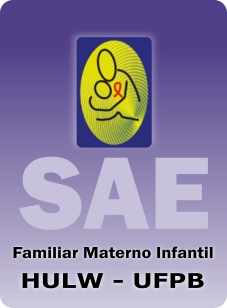Notícias
J&J’s Quest for Elusive HIV Vaccine Is Poised for Major Test
Immunization aims for global protection, multiple populations
Johnson & Johnson is preparing to test an experimental HIV vaccine in the U.S. and Europe in a move toward developing the first immunization against the deadly disease after decades of frustration.
Some 3,800 men who have sex with men will receive a regimen of shots in a study that’s planned to be launched later this year, Anthony Fauci, director of the U.S. National Institute of Allergy and Infectious Diseases, said in an interview. The agency and the HIV Vaccine Trials Network of testing sites will collaborate with J&J’s Janssen unit on the effort.
Since cases first began to gain notice in the early 1980s, scientists have been searching fruitlessly for a vaccine against the virus that causes AIDS and kills close to 1 million people worldwide annually. Efforts are continuing with at least two other promising candidates in late-stage studies.
J&J is endeavoring to make a vaccine that will work in populations around the world that are infected with myriad strains of the rapidly changing virus. Other candidate shots have focused on preventing single varieties.

Dan Barouch
The approach “brings us one step closer to covering the vast diversity of viruses worldwide,” said Dan Barouch, a Harvard Medical School professor whose research laid the groundwork for the vaccine. “For medical and global public health reasons, it’s better to have a vaccine that works in multiple parts of the world.”
Collaborators on the study include the U.S. Army Medical Material Development Activity, which develops protective products for soldiers, and results are expected as soon as 2023. The company has spent hundreds of millions of dollars, working with the National Institutes of Health, the Gates Foundation and other groups to try to develop an effective vaccine.
“The cost of treating HIV patients -- the burden for patients, the burden for society -- is very high,” said Paul Stoffels, J&J’s chief scientific officer. HIV prevention is “a big mission for us. We’ve been working on it for almost 30 years.”
The World Health Organization has set a goal of cutting global HIV-related deaths to less than half a million by next year, and a vaccine is seen as a critical tool to help end the AIDS epidemic by 2030. Yet efforts to develop an immunization have been frustrated in part because the virus mutates so quickly.
Vaccine Boost
J&J’s vaccine has four components that target multiple strains of HIV, and Barouch has been developing it for about 15 years. He and Bette Korber, a computational biologist at Los Alamos National Laboratory, designed an optimized set of “mosaic” proteins to go in the vaccine that would raise immune defenses against a wide variety of strains.
The vaccine uses a cold virus that’s altered to make the proteins that raise immunity. Study participants get six shots in four sessions.
“Conceptually it’s an interesting idea,” Fauci said. “There’s always excitement, but it should be saved for the results.”
Along with the diversity of strains, HIV presents a number of obstacles to vaccination. Reservoirs of the virus can accumulate within certain cells, undetected by the immune system. No one has been able to fashion a vaccine that brings forth broadly neutralizing antibodies, the body’s most effective protection against viruses. Still, the J&J vaccine has provided protection in up to two-thirds of tested animals and has so far proven safe in humans, Barouch said.
“It’s measurably better in animal studies than other vaccines tested thus far,” said Bruce Walker, director of the Ragon Institute, a Harvard- and Massachusetts Institute of Technology-affiliated biomedical research center focusing on immune approaches to disease. “The real questions are, will it be protective, what percentage of people will be protected, and what will be the durability of the protection?”
Another version of the mosaic vaccine is being tested in Africa, where the vast majority of HIV transmission takes place, in a trial that began in 2017. That experiment, called Imbokodo, enrolled about 2,600 women in five countries.
Running Mosaico in parallel with the Imbokodo study may cut down the time to approval, should the results prove positive, said Mitchell Warren, executive director of AVAC, an HIV prevention advocacy group.
“You’ve got this picture where there’s one study in women at risk and another about to start in men,” he said in a telephone interview. “You can put the trials together in one overall submission to regulators.”
Even if the first study fails, J&J would likely continue the second, said Hanneke Schuitemaker, head of viral vaccine discovery and translational medicine for Janssen. Given the differences between the two populations and their typical routes of infection, the vaccine’s dynamics in them may vary dramatically.
Acquired in Purchase
Fauci will give more details of the study at a meeting of the International AIDS Society later this month in Mexico City, and J&J is also planning to release additional data on the preventative.
GlaxoSmithKline Plc, Gilead Sciences Inc., Pfizer Inc. and other companies have developed dozens of drug treatments over the years that can reduce levels of the virus to the point where it isn’t contagious. Some people at high risk take daily doses to protect themselves from infection. That’s not feasible in many low-income African countries, where shots would be a more economical alternative.
Read More: A Blue Pill Is Stopping HIV, World-First Study From Sydney Shows
J&J gained the vaccine when it made a 2010 agreement to buy Dutch drugmaker Crucell for about $2.4 billion. To be successful, the product will have to succeed where a series of predecessors have stumbled.
Those include a vaunted experimental vaccine from Merck & Co. that failed -- and may have increased infections -- more than a decade ago. Another large trial in Thailand, using a vaccine developed in part by Sanofi, gave mixed results soon afterward.
Continued interest of large pharma companies like J&J is a good sign after the years of frustration in an field where the market remains uncertain, said Marie-Paule Kieny, a director of research at French biomedical institute Inserm.
“This is a good step forward,” she said, noting that J&J is also developing a vaccine against Ebola. “It’s good to see that industry remains committed.”
— With assistance by Jason Gale
(Updates with comments from J&J chief science officer in seventh paragraph.)

